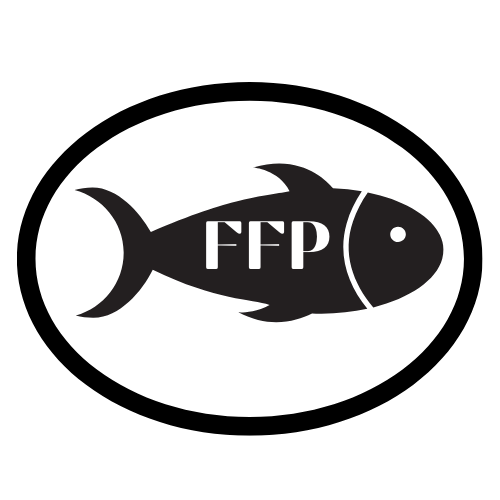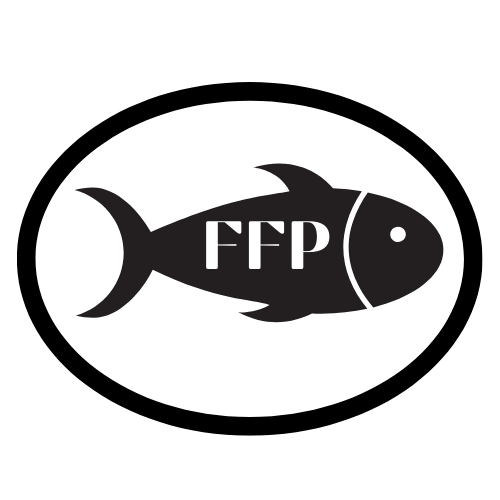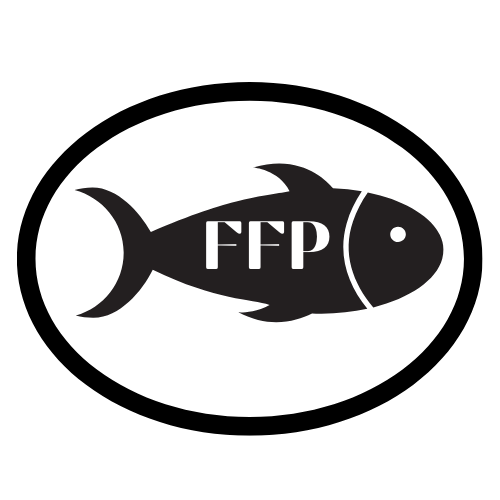Discover Fishing For Problems
Fishing For Problems

24 Episodes
Reverse
I had the pleasure of speaking with Dr. Pam Grossman. "Dr. Grossman is a leading expert in teacher preparation, teacher quality, and teacher professional development. A former high school English teacher, Dr. Grossman is at the forefront of rethinking how teachers are educated and studying the connections between the support they receive, the quality of their classroom practice, the likelihood they remain in teaching, and student learning." This is the last of a collection of four episodes recorded in early 2022 on the topic of teacher attrition. We discuss the impact of school and district leadership on teacher turnover, the challenges that different types of schools face in retaining high-quality teachers, potential policy solutions to high rates of teacher resignation, and more. Enjoy.
For this conversation, I spoke with Jenine Wehbeh. Jenine teaches seventh- and eighth-grade social science in Chicago Unified. Jenine is the recipient of the Golden Apple in Teaching Excellence Award, which honors teachers for their commitment to social justice education. We discussed the conditions of teaching during a time of Covid. We also explored why the profession has such a hard time retaining individuals year over year.
You can learn more about Jenine here.
Enjoy the podcast.
For this conversation, I spoke with Dr. Richard Ingersoll, Professor of Education and Sociology at the Graduate School of Education at the University of Pennsylvania. Dr. Ingersoll is a leading expert on America’s elementary and secondary teaching force. His research examines teaching as a job, teachers as employees, and schools as workplaces—from a teacher’s pre-employment training through their last day in the classroom.
We have a profession called teaching. Theoretically, it's an important profession. That profession—teaching—is staffed by teachers. Teachers come and teachers go. It’s natural for individuals to leave a profession. So is there something unique about teacher turnover? This is the question we attempt to answer by exploring the history of teacher attrition, the reasons why the professions struggles to retain teachers year over, and the current challenges facing teachers during a time of Covid. We also explore possible policy solutions to this problem. Enjoy!
Join me for a broad conversation with Dr. Lucy Sorensen, Associate Professor of Public Administration and Policy at the Rockefeller College of Public Affairs and Policy, University at Albany, SUNY, and a Faculty Fellow at the Nelson A. Rockefeller Institute of Government. Dr. Sorensen conducts research exploring interactions between education policy and human development, with a focus on how policy interventions can reduce educational and economic inequality. We discuss (1) the historical context of teacher attrition, (2) the why behind this problem, (3) hidden costs of teachers leaving the profession, (4) the current context, and (5) possible policy solutions. Enjoy!
Dr. Terrance Green is an Associate Professor in the Department of Educational Leadership and Policy at the University of Texas at Austin. His research examines the relationship between educational leadership, schools, and neighborhood-communities, with a focus on racial and educational equity. His writing has been published in several journals, including Teachers College Record and Educational Administration Quarterly. During our conversation, we discussed the role that school and district leaders play in extending the traditional physical boundaries of a school to build partnerships between schools and communities. We also talked about the impact of gentrification on the schooling system.
Dr. Judy Pace is a professor in the University of San Francisco education department. She aims to prepare educators with conceptual and practical tools to create constructivist, transformative, and equitable learning experiences that promote critical and democratic habits of mind, deep understanding, and civic agency.
A qualitative researcher, she is fascinated by classroom teaching and how it is shaped by teachers, students, schools, and society. Her research has focused on classroom authority and academic engagement, teaching for democratic citizenship, social studies teaching under high-stakes accountability, and preparation of preservice teachers for teaching controversial issues. Her new book is Hard Questions: Learning to Teach Controversial Issues (Rowman & Littlefield). She is the author of The Charged Classroom: Predicaments and Possibilities for Democratic Teaching (Routledge), and co-editor of Educating Democratic Citizens in Troubled Times (SUNY) and Classroom Authority: Theory, Research, and Practice (Routledge).
Dr. Joanna Goode is the Sommerville Knight Professor in the College of Education at the University of Oregon. She began her career in education as a high school computer science teacher in a large, diverse urban school, and she builds on this experience to research how educational policies and practices can foster equity, access, and inclusion in K-12 computer science education. Joanna has directed multiple National Science Foundation-sponsored research projects, developed the equity-focused Exploring Computer Science high school course, and is the co-author of the book, Stuck in the Shallow End: Education, Race, and Computing (MIT Press, 2008/2017).
In this episode, Dr. Goode talks about the development of inclusion in the CS classroom.
In this weeks episode, Dr. Norm Vaughan talks about why it is important to create learning centers, not student centered learning. He also talks presents an alternative definition to blended learning that is less about the technology and more about the learning experience. Norm is incredibly passionate about his work and provides a critical perspective on how to approach the design of learning environments in the 21st century.
Dr. Jeremy Stoddard is a (Full) Professor and the Faculty Chair of the Secondary Education Program at the University of Wisconsin-Madison. His research examines the role of media in teaching and learning history and democratic citizenship – with a particular focus on engagement with difficult or marginalized histories and contemporary controversial issues. He has published numerous articles in peer-reviewed journals and is the co-author or co-editor of three books, including Teaching Difficult History Through Film. Jeremy and I talked about Purple State, a research project he’s leading that is focused on engaging high school students in an authentic political simulation. One of the goals of that work is to build civic competence. We also discussed the role of film and TV in the K-12 classroom. We hope you enjoy the conversation.
Dr. Diana Hess is the Dean of the University of Wisconsin-Madison’s School of Education. She is also the principal investigator of The Discussion Project, a professional development program that aims to strengthen campus wide capacity to create welcoming, engaging, and academically rigorous classroom environments in which students experience productive classroom discussions on important issues and topics. The topics of this conversation are drawn from a 2013 paper titled Classroom Deliberation in an Era of Political Polarization and a 2015 book titled The Political Classroom: Evidence and Ethics in Democratic Education, both co-authored with Dr. Paula McAvoy, a recent guest of the show. Dr. Hess is also the author of the 2009 book, Controversy in the Classroom. This episode is part of a larger series on how to engage students in controversial political topics in the K-12 classroom. If you enjoy what you hear, please be sure to write a review and share it with your friends and colleagues.
Dr. Punya Mishra is Associate Dean of Scholarship & Innovation and Professor in the Division of Educational Leadership & Innovation in the Mary Lou Fulton Teachers College at Arizona State University. He is best known for his research on the integration of technology into the PK-20 space. The Technological Pedagogical Content Knowledge Framework (“TPACK”) that Dr. Mishra developed with his Dr. Matthew Koehler is an attempt to identify the knowledge teachers need to thoughtfully integrate technology into their classroom practice. He has published numerous peer-reviewed articles and has edited three books, including his most recent book on the intersection of creativity, technology, and education.
TPACK served as the foundation for this conversation. We discussed the framework, its implications, its weaknesses, and how it might be used by educators. We also discussed Neil Postman, the concept of “education technology,” and Punya’s 23rd Law of Parenting: “for facts go to Google, for wisdom come to me.”
Will Richardson is a former public school teacher. His current work focuses on “the intersection of social online learning networks, education, and systemic change.” He is the co-founder of The Big Questions Institute, a project aimed at helping educators navigate the challenging waters of education during and after a time of Covid. He is also the co-author of a new book, 9 BIG Questions Schools Must Answer to Avoid Going "Back to Normal" (*Because "Normal" Wasn't That Great to Begin With). During our conversation, we discuss the 9 questions as well as the possibilities of school change during this complex time. If you like the show, don’t forget to rate us on your favorite podcast app.
Dr. Kim Schildkamp is an Associate Professor in the Faculty of Behavioral, Management, and Social Sciences at the University of Twente in the Netherlands. Her research focuses on (professional development in) data-informed decision making. She is a Fulbright scholarship recipient, which she used to study data use in Louisiana. Kim is also the current president of ICSEI (International Congress on School Effectiveness and Improvement). Kim has done research on data use and school improvement in multiple countries—she is one of the top academics on the topic of data use in the K12 space—and has published numerous papers in peer reviewed journals. Kim and I talked about data use in K12, a practice that her research shows is complex and multifaceted. Because it is a commonly used strategy for school improvement, an increased focus on how to do it well and a realization that significant time and effort is required to master this practice is critical for school and district leaders as well as teachers. I hope this conversation illuminates some of the challenges and provides some recommendations for how to do this work well.
Sapna Cheryan is an American social psychologist. She is a full professor of social psychology in the Department of Psychology at the University of Washington. (1)
"Her research investigates the role of cultural stereotypes in causing and perpetuating racial and gender disparities in U.S. society. She has published numerous articles on these topics in journals such as Psychological Science, Journal of Personality and Social Psychology, and Psychological Bulletin. Her work on gender disparities in computer science has been cited widely in media outlets, including in the New York Times, NPR, and Washington Post. In 2014, the White House issued a press release that announced a high school computer science classroom design prize based on her research." (2)
(1) courtesy of wikipedia
(2) courtesy of National Center For Women Informational Technology
Dr. Paula McAvoy is an Assistant Professor in the College of Education at North Carolina State University. She was previously the Director of the Center for Ethics and Education at the University of Wisconsin-Madison. She has published multiple peer-reviewed articles and co-authored a book, The Political Classroom: Evidence and Ethics in Democratic Education, with Dr. Diana Hess. More information on that book can be found here. She also taught high school social studies in Los Altos California for 10 years. Her research focuses on philosophical and empirical questions concerning the relationship between schools and democratic society. During our conversation, we discuss the theory that informs her view that schools should be political institutions, and that classrooms should be the site of rich deliberative discussions about controversial political issues. This research is topical considering the elevated levels of political polarization in American society. This conversation and the synthesis of her 2013 article in the January 2021 edition of the Spanning Boundaries Teacher Newsletter should provide educators with a set of strategies to begin having political conversations in their classrooms.
Dr. Jayson Richardson is a professor and the Department Chair of the Department of Educational Leadership and Policy Studies in the Morgridge College of Education at the University of Denver.
He is the editor-in-chief of the Journal of Educational Administration. He has written or co-authored articles in the following journals: Comparative Education Review, Educational Administration Quarterly, International Journal of Education and Development using ICT, Information Technology for International Development, Journal of International Development, Journal of School Leadership, Review of Policy Research, and The Teacher Educator.
Nabil Zerizef is Principal of Rowe Middle School in Milwaukie, Oregon. Previously, he was the principal at Farmington View Elementary School in Hillsboro, OR. He was also a Multimedia Professional Development TOSA, where he supported facilitated tech-focused PD for teachers and principals. As a principal, Nabil is dedicated to providing successful learning environments for all students. During our conversation, we discuss what it’s like to start a new job as principal of a school during a time of Covid; how he’s thinking about being a leader during a time of crisis; how Covid might be used to transform historical schooling structures that do not benefit all students; and what it means to be a good school leader. Nabil also co-authored A Kids Book About Adoption with a former student of his.
Marc Tucker is the former President and CEO of the National Center on Education and the Economy (NCEE). Marc's goal at NCEE "was to learn as much as possible from the countries that have been outperforming the United States, translate that into a policy agenda, and then work with the states to implement that agenda by helping them develop the policies and the institutional capacity they need to do the job." His 2019 book, Leading High Performance School Systems, is both an exposition of top-performing school systems throughout the world and a potential blueprint to transform the American School System. This book serves as the focus of our conversation.
Dr. Edward Deci is Professor of Psychology and the Gowen Professor in the Social Sciences at the University of Rochester, as well as the director of the Human Motivation program. He is well known in psychology for his theories of intrinsic and extrinsic motivation and basic psychological needs. With Richard Ryan, he is the co-founder of self-determination theory (SDT), an influential contemporary motivational theory. Self-determination theory is a macro theory of human motivation that differentiates between autonomous and controlled forms of motivation; the theory has been applied to predict behavior and inform behavior change in many contexts including: education, health care, work organizations, parenting, and sport (as well as many others).
Comments
Top Podcasts
The Best New Comedy Podcast Right Now – June 2024The Best News Podcast Right Now – June 2024The Best New Business Podcast Right Now – June 2024The Best New Sports Podcast Right Now – June 2024The Best New True Crime Podcast Right Now – June 2024The Best New Joe Rogan Experience Podcast Right Now – June 20The Best New Dan Bongino Show Podcast Right Now – June 20The Best New Mark Levin Podcast – June 2024
 United States
United States





